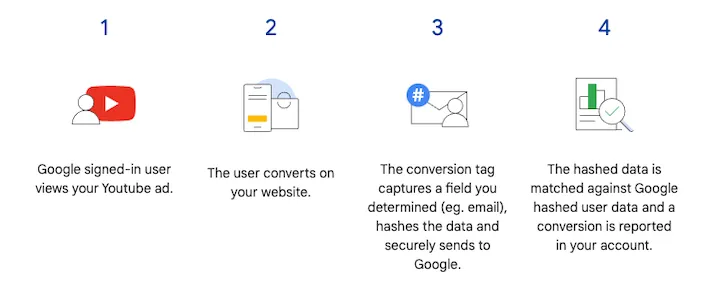How different browsers will handle the post-third-party cookies landscape
Google Chrome: The introduction of the privacy sandbox
Google isn't simply phasing out third-party cookies; they have a long-term strategy that has been in the works for some time.
Their replacement for tracking cookies is known as the ‘Privacy Sandbox.’
The Privacy Sandbox aims to address privacy concerns while still allowing advertisers and other third-party services to deliver personalised online advertisements. It isn’t just one entity; it’s a collection of several technologies using APIs. It relies on anonymised signals within a person’s Chrome browser to gain insight into that user’s browsing habits.
The data remains within the Chrome browser rather than in the current situation where cookies are embedded into user’s devices.
However, there’ll still be the opportunity to leverage Google ads, as Google will power these ads with Google’s first-party cookies and the Privacy Sandbox tools. Unfortunately, this means that if you also rely on other ad tools which require third-party data, you’ll have to look at alternatives, as these are unlikely to continue to operate in their current form.
Mozilla Firefox: Enhanced tracking protection
Mozilla Firefox has been a huge advocate of user privacy for a long time. Their Enhance Tracking Protection (ETP) block known third-party cookies by default. It enhances users’ privacy by preventing advertisers from monitoring users across websites.
Firefox is expected to continue strengthening its stance on user privacy. Marketers should consider this when targeting Firefox users and explore alternative strategies that align with ETP settings.
Apple Safari: Intelligent Tracking Prevention (ITP)
Apple’s Safari browser has been a pioneer in privacy protection with its Intelligent Tracking Prevention (ITP) features. ITP has gradually limited third-party cookie tracking and cross-site tracking. This means that marketers relying heavily on third-party cookies may already be feeling the impact when targeting Safari users.
As we move forward, Safari is expected to further enhance its privacy features, which will affect how marketers track and target users on this browser. Consider diversifying your strategies to ensure you can reach Safari users effectively.
Microsoft Edge: Balancing privacy and personalisation
Microsoft Edge, while focused on user privacy, also acknowledges the importance of personalised experiences. It has adopted features like "Tracking Prevention" to block known third-party trackers while allowing websites to function optimally.
Edge aims to strike a balance between privacy and personalisation, and its approach may evolve as the post-third-party cookie landscape unfolds. Marketers should keep an eye on updates from Microsoft and adapt their strategies accordingly.
Putting online privacy at the forefront of marketing strategy
Although the demise of third-party cookies introduces several hurdles, it also presents an opportunity for marketers to rejuvenate their strategies, put user privacy at the forefront, and forge meaningful connections with their audience through innovative approaches.
The key to thriving is to adapt, innovate and remain flexible until you find your new momentum and what works for your marketing team and organisation. By remaining adaptable and responsive to these changes, you can continue to deliver relevant and personalised experiences while respecting user privacy, ultimately ensuring your success in the post-third-party cookie era.
In need of expert guidance to ensure you’re prepared for the demise of third-party cookies? Our team of skilled reporting and insights analysts specialise in all things tracking and can help you enhance your business's data-driven strategies. Contact our team to find out more.





